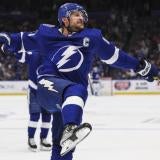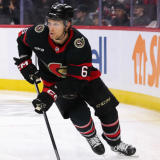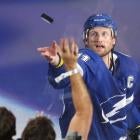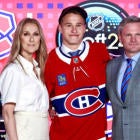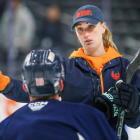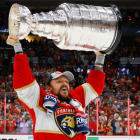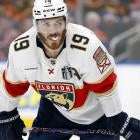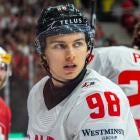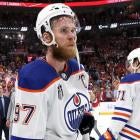It was August 2006, and the stars were aligned for Phil Kessel.
Actually, they had been aligning for quite some time. Born and raised not far from hockey's Midwestern heartland in Madison, Wisconsin, the youth phenom was drawing nationwide recognition before he became a legal adult -- a feat shared by plenty of those who went on to be poster (young) men of the National Hockey League. His record-breaking goal totals for the United States National Team Development Program came before he graduated high school in Ann Arbor, and he was touted as an early-round NHL talent before he even committed to playing a single season at the University of Minnesota.
It was August, though, just a little over a month after he was made the fifth overall pick of the 2006 NHL Entry Draft, coming off the board two spots after eventual Chicago Blackhawks stalwart Jonathan Toews, when it all became a reality.
That's when Kessel, forever a star on ice and also, willfully or not, a fighter of expectations laid by a family laced with pro athletes, put his name on a career. Literally. It's when he signed a three-year contract with the Boston Bruins. The deal was worth up to $6.6 million on paper, but it was priceless in that it proved one thing: Phil Kessel had finally, actually made it.
Until almost two months later. Until Dec. 11. The day his family said he had been hospitalized. The day doctors diagnosed him with testicular cancer.
"As a young hockey player, you think you're invincible," Kessel told CBSSports.com.
And how could he have thought otherwise? The then-18-year-old winger was just starting his all-but-predestined career, following parents and siblings who either played in or went on to play in the NFL, NHL and National Women's Hockey League. If his natural gifts -- and the star-studded journey they jump-started -- taught him to incorporate any word into his vocabulary, it was invincible.
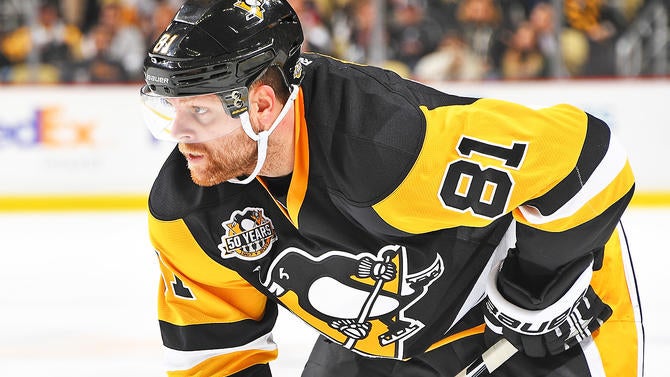
And yet that didn't stop medical recommendations for surgery.
"What I learned is how fast life can change," Kessel said. "I was young, starting my professional career. Couldn't wait to start my dream of playing in the NHL ... I had to grow up a lot faster and face a new challenge. I was in shock, but I knew once the diagnosis was made, I was in the best possible care."
The care -- and surgery -- was so good, in fact, that the Bruins' top prospect was back on the ice by Jan. 9, 2007. Kessel said he went right to the doctor after undergoing an operation to remove the cancer, asking when he could play again. And it turned out that, by the time his absence had come to a close, by the time the Wisconsin native had shoved his diagnosis into "the rear-view mirror," Boston had only played 11 games without him. By season's end, Kessel had been branded the winner of the NHL's Bill Masterton Award, gifted to the player who best exemplifies perseverance, sportsmanship and dedication to hockey.
Talk about invincible.
Kessel, on the other hand, will tell you that "things happen for a reason," including his abrupt bout with cancer. And it's possible, his comments suggest, that the "reason" for his diagnosis as a teen was to prove that he, even with all his puck skills and athletic blood, was actually not invincible. It's partly why, more than a decade later, he's diving headfirst into cancer awareness activism, partnering with Cigna for the Every Save Counts and Hockey Fights Cancer initiatives, the former of which will donate $1 for every save made during the 2017-18 season, sending as much as $100,000 to the NHL Foundation for cancer research institutions, children's hospitals and charities.
"Recognition and responsibility tend to go hand in hand," Kessel said. "In my case, I had regular conversations with my doctor, which resulted in my early diagnosis and treatment. This isn't the case for everyone, and so if ... [sharing] my personal health story can encourage others to get a check-up with their doctor and potentially save a life, that's a huge win for me."
By this stage of his career, of course, 11 years into his tenure in the pros with two Winter Olympics appearances and the same number of multimillion-dollar extensions under his belt, Kessel is about as familiar with a "huge win" as anyone in the game. The road to reverence didn't come without a few more reminders that "invincible" is too lofty a descriptor for his life on ice -- as he was recovering from shoulder surgery in September 2009, the three-time All-Star was traded to Toronto, where he went off with career numbers but battled critics who infamously and erroneously accused him of a poor diet around the time that, two years into an eight-year contract, he was traded again.
As far as "huge wins" go, however, it doesn't get much huger than back-to-back Stanley Cup titles, and that's exactly what Kessel has accomplished with the Pittsburgh Penguins -- something, by the way, that no other franchise had done in almost 20 years. A model of durability since his Maple Leafs days, he has carried his streak of 82-game seasons into Steel City, where he has given an already-potent contender two straight years of at least 23-goal material. And where, starting with Wednesday's opener against the Blues, he began the historic quest for a three-peat alongside Conn Smythe Trophy winner Sidney Crosby and longtime Penguins center Evgeni Malkin, the pillars of a contemporary NHL dynasty.
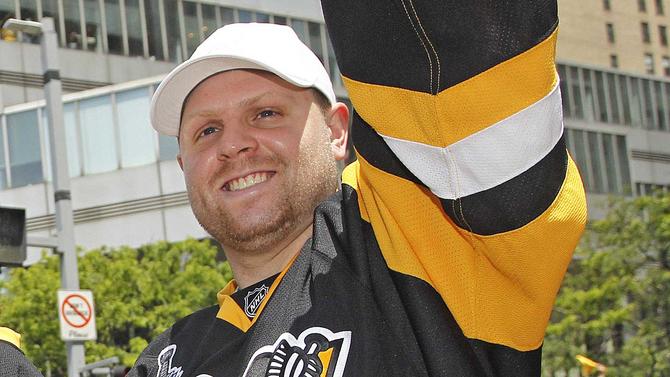
"It's unbelievably surreal," Kessel said. "Looking back two years ago when I was traded, I just couldn't imagine being a two-time Stanley Cup champion."
And after a summer in which the Pens lost some "good friends" in veteran players like Marc-Andre Fleury and assistant coach Rick Tocchet, hailed by some outlets as Kessel's personal mentor, the veteran still isn't concerned with Pittsburgh's chances. He made it clear that Tocchet's departure for greener pastures -- or at least increased responsibilities -- in Arizona doesn't cloud Kessel's respect for promoted assistants Mark Recchi and Sergei Gonchar, even if Tocchet "is a good friend of mine on and off the ice." And the Penguins' wealth of both experience and up-and-coming talent has him, like plenty of pundits, eyeing another hunt for the Cup.
"There are many good teams, but we're right there," Kessel said. "We will be right there and, like every year, you have to have breaks go your way and learn to face adversity, and being back-to-back Stanley Cup champs helps us deal with anything that comes our way."
Kessel knows a thing or two about adversity, too. Some of it he has addressed head on -- in the name of cancer awareness, he might point to 2006 as the best example of when hurdles hit close to home. Some of it he has addressed in spurts, or at least not explicitly -- he chose not to get into his decision to fill the Stanley Cup with hot dogs over the summer, a not-so-subtle allusion to his alleged Toronto diet. And some of it he has ignored altogether, a common but respectable theme for a man whose much-publicized refrain from getting wordy about himself has amplified the mystery that is his personality.
Here and there, the Pens wing will allow you to pry into the man that fills out the "Kessel" lettering and No. 81 jersey, if ever so slightly. He noted, for instance, that he isn't superstitious but prefers a massage and a cup of coffee before games. And that, if ever there were to be a movie made about Phil Kessel, he's sure fans would have many suggestions for who should portray him -- "maybe not great ones." But most of all, he seems content letting the no-nonsense facts -- that he, Phil Kessel, is a premier scorer in a deep lineup on the NHL's best team the past two seasons -- speak for themselves.
Either that or he's just busy working on bringing that third title to Pittsburgh.
It's October 2017, and the stars are still aligning for Phil Kessel.







